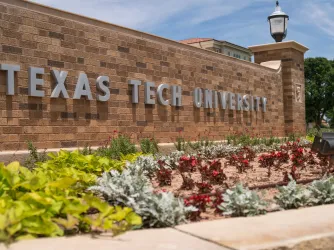Table of Contents
‘We Shall See’
What attracted the most attention in the editorial—indeed, it developed a life of its own in hundreds of citations—was an exchange between a student and an administrator who both were on the committee to design “diversity education.” In truth, I had encouraged this brave, female undergraduate both to join the committee with her own sense of a university and to speak her mind plainly. She wrote a memo to her colleagues about the emphasis on group, expressing “my deep regard for the individual and my desire to protect the freedoms of all members of society.” An administrator sent her memo back to her, with the word “individual” underlined, and writing, “This is a ‘RED FLAG’ phrase today, which is considered by many to be RACIST.”
That noxious tide of political correctness was rising throughout the 1980s and into the 1990s. I wrote, in my editorial, of its strengths on campus, including “the radicals’ almost uncontested control of moral symbolism.” I also noted “its moral vulnerabilities”: “the Orwellian substitution of thought reform for behavioral sanctions; the desire for essential freedom of speech and expression....; the ability...to distinguish between authentic education and tendentious indoctrination; the unwillingness of administrators to defend intellectual repression under public scrutiny; and the manifest wickedness of imposing group-identities upon the universities of a nation where the right to individuate according to private conscience remains the authentic criterion of liberation.” I concluded, defiantly (but none too optimistically), “We shall see.”
Indeed. Before FIRE, there were isolated figures defending individual students (and faculty) on a case-by-case basis, unable to turn the “moral vulnerabilities” of coercive political correctness to the advantage of liberty and individual rights. How that has changed in five years. Read and re-read FIRE’s website and archives, and see what the work of this politically diverse group of men and women has accomplished. The staff of FIRE have produced systemic means of change, have redefined the public debate, have ended campus fatalism, and have seized the high moral ground on behalf of freedom, fairness, and legal equality. One does not accomplish anything for the good simply by wish or by complaint. One changes things by focused moral action. The staff of FIRE, collegial across a political spectrum that our campuses do not even approach (either in collegiality or in true pluralism) are redrawing the essential circumstance of individual rights in higher education, and the term “individual” is indeed a flag for them, but one on behalf of everyone’s dignity and equal rights. It has been a long struggle, and FIRE’s staff have infused it with an intelligence and principled purpose that are unequalled in this domain. I am privileged to be associated with them. In all the defiance of “We shall see,” I could not have envisaged FIRE and its success. FIRE’s staff think, “We shall understand, and we shall do.” They deserve your support.
Recent Articles
Get the latest free speech news and analysis from FIRE.

FIRE answers your questions
Podcast

Texas runs afoul of the First Amendment with new limits on faculty course materials

Free speech advocates rally to support FIRE’s defense of First Amendment protections for drag shows
